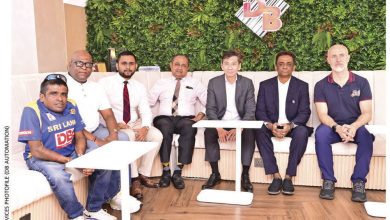HATCH
Q: How would you define ‘open innovation’ – and how can it benefit Sri Lanka at this time?
Jeevan Gnanam (JG): Open innovation refers to a process that enables unrestrained creativity. Leveraging perspectives from external sources to approach internal problems allows organisations to develop innovative solutions unrestricted by preconceived notions of what is possible.
At Hatch, we pride ourselves on being the centre of gravity for all things startup, which puts us in the perfect position to connect the startup community/budding entrepreneurs with corporates to facilitate purpose driven open innovation, leading to value creation.
Sri Lanka is at a critical juncture where open innovation can help fast track industry growth, providing large companies and startups with better opportunities to build successful global solutions.
Q: So how can partnerships focussed on open innovation – such as Hatch’s collaboration with IFS – fast track local tech industry growth?
JG: They can achieve this by enabling knowledge sharing, providing access to resources and networks, supporting innovation and enhancing talent development. Open innovation platforms like ChallengerX can also help mitigate the brain drain by providing local talent global opportunities right here in Sri Lanka.
ChallengerX was an excellent opportunity to provide local tech talent, particularly from the university network, with exposure to problems faced by a global customer base and offer them the opportunity to apply their theoretical knowledge with the support of an international network of mentors, as well as IFS leadership and technical expertise.
And ChallengerX is Sri Lanka’s first AI-machine learning accelerator, creating a new paradigm in open innovation.
Q: What are some challenges facing innovators in Sri Lanka and how can they be overcome?
JG: Limited access to funding and a lack of supporting infrastructure are two of the biggest challenges. Outsourcing open innovation to incubators like Hatch is a cost-effective way to tackle them.
Hatch works with corporates to articulate problem statements, connect with relevant startups/individuals and provide access to a vast network of international mentors while also providing a collaborative co-working space that is home to a dynamic community of startups who can support those participating in these programmes.
Q: Open innovation is driven through ecosystems with several partners both locally and globally. How can companies such as yours level the playing field so that smaller companies and individual innovators can be recognised and nurtured?
Oliver Pilgerstorfer (OP): IFS is an international software business with nearly 6,000 employees. We are lucky enough to have invested in Sri Lanka for over 25 years and it’s also home to some of our best talent. Therefore, we’re committed to investing back in Sri Lanka to ensure that we provide career opportunities for tomorrow in our role as the second largest IT employer in the country.
It is partly a moral obligation for companies of our size to foster innovation and talent through the ranks, building awareness and encouraging young graduates to enter the software sector. We want to promote growth on a personal level, at a company level and at the national level.
Q: What future goal or long-term vision does IFS aim to achieve by supporting open innovation in Sri Lanka?
OP: For us, ChallengerX was an opportunity to benefit our customers by building an ecosystem around IFS. It would be great if some individuals decide to work for IFS in the future but that is not our only goal. We are equally happy if they decide to take their MVP (most valuable player) to the next level by establishing a business or commercialising it on a global level.
The way this programme worked was we first set the teams’ problem statements, which was how they would put resources in place to operate effectively in the event of a natural disaster. These tech entrepreneurs then ideated and created a response using their own skills and data. Taking an initiative here means that we can open the door to selling on a truly global marketplace.
We had people who were specialist data scientists, others who were into machine learning and AI, and even critical business thinkers. This meant that we had some really diverse responses. And that’s the whole purpose of these programmes.
The role that IFS played was to open the door from giving a problem statement to providing the teams with access to technology so they could build a response or minimum viable product. This gives them the credibility to go and ask for funding, and meet the right partners to take the MVP to the next level.
There are a lot of opportunities that we can provide for someone participating in initiatives like ChallengerX so we hope to continue our partnership with Hatch. The Hatch team comes from diverse backgrounds – from the mentors and advisors to third parties who invest back in them. We are really grateful for that level of ‘give back,’ as well as Hatch’s strong industry and government connections that can have an influence on a global stage.
– Compiled by Avanti Samarasekera
CONTACT DETAILS
Telephone – 7652500 | Email – joinus@hatch.lk | Website – www.hatch.lk








